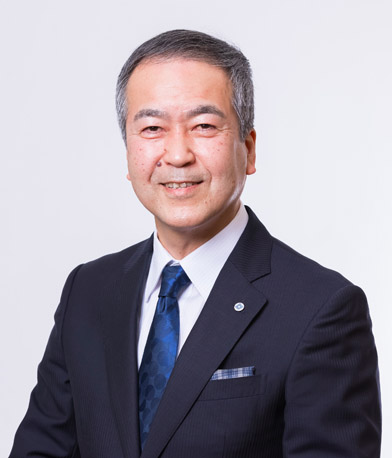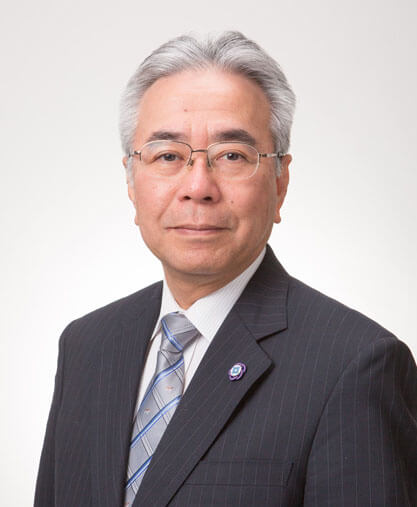
Today, the structure of industry is changing at an ever-accelerating pace due to advances in AI and robotics technologies, as well as digital transformation (DX). Even in Japan, a futuristic vision of economic development and solutions to social issues by the realization of a “Super-Smart Society 5.0” is being designed, which fuses virtual space with the physical world. At the same time, SDGs (Sustainable Development Goals) are being advocated to address global-scale issues caused by human activities, and the international community as a whole is making various efforts toward the “sustainable development” of human society.
Our basic principle, as enshrined in the Charter of Kanazawa University, is “a research university dedicated to education, while opening up its doors to both local and global society.” We have a responsibility to play an ever more important role, placing emphasis on its public-spiritedness in response to the demands of society.
As the world rapidly changes, Kanazawa University will contribute to a hopeful society. We will lead the way in solving current issues using interdisciplinary “comprehensive knowledge, and also” create “knowledge of the future,” the wisdom to continue to search future issues and overcome them. We will foster “Kanazawa University-brand” human resources with the ability to become core leaders of the global society.
In order to carve out a future in a society with no model answers, in April 2021, we established the College of Transdisciplinary Sciences for Innovation, a new academic field as a basis of interdisciplinary education in response to the Society 5.0, and launched the School of Entrepreneurial and Innovation Studies aiming to cultivate human resources who will “think outside of the box,” transform society, and pioneer a new future. In April 2022, the School of Tourism Sciences and Design was established in the same college, aiming to foster human resources to create a new value-design society, unlike the conventional tourism studies. Furthermore, we are applying to set up the School of Smart Creation Science (tentative name), by April 2023, aiming to cultivate human resources to create future sciences for sustainable smart cities.
In addition to strengthening interdisciplinary liberal arts and the STEAM education, we are striving to build an educational environment where students can “teach and nurture themselves” so that they can further enhance their expertise while acquiring a broad range of knowledge. We also recommend students try putting themselves in a totally new environment, such as studying abroad, doing intern jobs, etc., to acquire the latest knowledge and co-create with others in a diverse environment under various conditions.
WADA, Takashi

College of Transdisciplinary Sciences for Innovation was established in April, 2021 as the fourth college of Kanazawa University. Even though it is the 4th college, it is mentioned first in the university regulations, which shows the former President Yamazaki’s strong enthusiasm and the university’s high expectations for this college.
The purpose of this college is to create new innovations, based on the will to transform the current stagnant society of Japan, beyond the borders of conventional academic fields. At the same time, it aims to foster innovative human resources capable of demonstrating core leadership in the knowledge-based society, who seek to contribute to the region and the world, by acquiring specialized knowledge in interdisciplinary fields and presenting a model for finding and solving problems.
The keywords to this college are: interdisciplinary (transdisciplinary); innovation; entrepreneurship; design thinking; and diversity.
Certainly, there is a criticism that the idea of interdisciplinary is nothing more than a theory and that interdisciplinary education is just a collection of researchers from various fields.
This criticism, however, does not come from a logic based on flexible thinking (a creative mindset). We have carefully selected candidates from a wide variety of people from inside and outside the university who are willing to take on challenges in different fields, and gathered the promising members to build the faculty team to launch our entrepreneurship program as a means of innovation.
There was a time when the phrase “Japan as Number One” was commonly used. However, Japan’s international status has been declining significantly for the last 20 years, and it is pointed out that in a world the COVID-19 pandemic, the Japanese economy would become further impoverished, resulting in losing its status as an advanced country.
This is because of the stagnant innovation since the late 1990s and being unable to create superior products and services. We must strive to develop education and research to overcome the current situation in Japan.
OHTAKE, Shigeki


